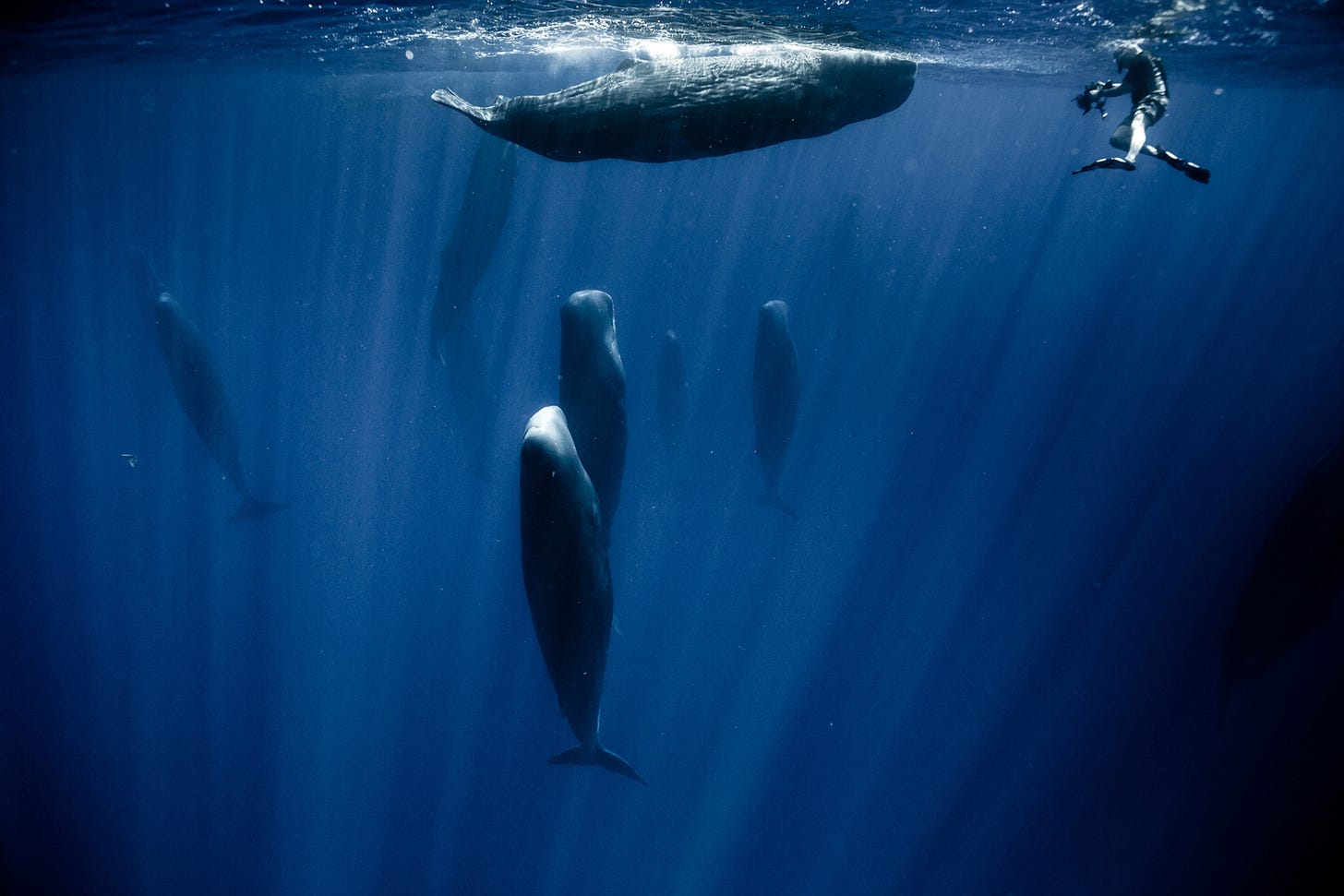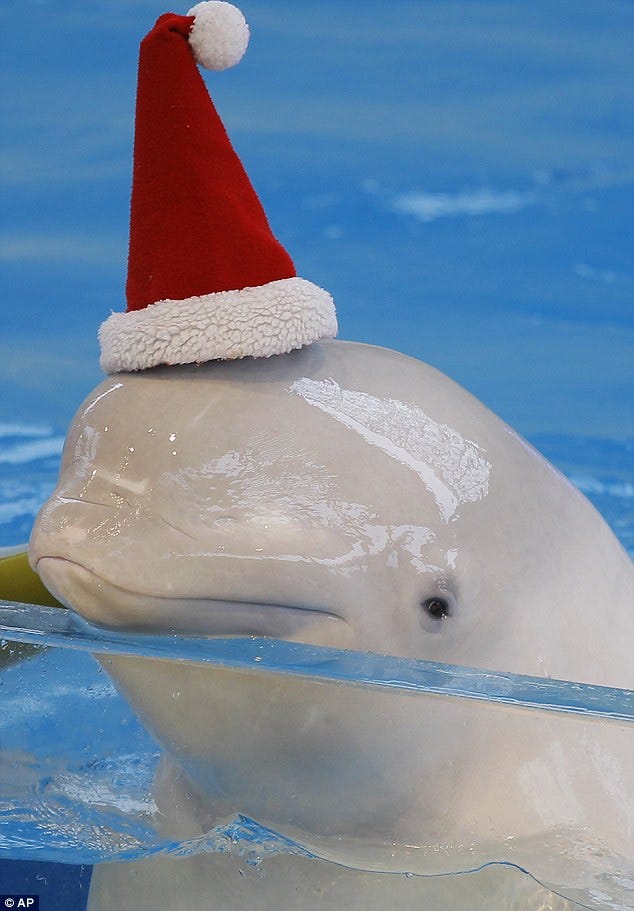It is absurd that one of the most intelligent, innovative, and capable species on the planet has not figured out how to conquer sleep, and spends a third of its life laying unconscious like a log for nine hours a night. It feels unreasonable that we need to lay unconscious for so long in order to rise and reign.
Most mammals don’t need such a long period of time to rest, recover, and heal every 24 hours. Most mammals are polyphasic sleepers, where they have short naps throughout the day that energize them, and don’t require as much sleep hours to function. Other animals like sloths and opossums need 15-20 hours of sleep every day. So, the excessive hours of sleep you needed after you woke up hungover made you the likes of a sloth… embarrassing.
The first time I heard of polyphasic sleep was when I was watching a whale documentary. Whale sleep sessions are characterized by short, intermittent periods where they enter uni-hemispheric slow-wave sleep (USWS) - our version of deep sleep. During USWS, one hemisphere of the whale's brain remains awake while the other hemisphere enters a sleep state. This allows whales to maintain basic life functions, such as surfacing for air and being alert to their surroundings. Whale sleep sessions are generally brief, lasting anywhere from a few minutes to around half an hour. They repeat these sessions multiple times throughout a 24-hour period. Whales engage in several sleep sessions each day. The exact number can vary among species and individual whales, but it often results in a polyphasic sleep pattern.
So whales essentially have naps multiple times a day instead of a giant nine hour period of being unconscious. It’s definitely a lot of work to be a whale, so clearly the polyphasic design isn’t useless.
sleeping sperm whales
Naturally, it made me wonder if humans have actually tried retiring their old mono-phasic ways and tried joining the rest of the superior sleepers in the animal kingdom. And yes, yes they have—polyphasic.net is proof. And yes, I know what you’re thinking. Is there a discord community too? Yes, yes there is.
My reading of the current bottleneck in the polyphasic sleep endeavor is that it can be hard to achieve REM sleep almost immediately upon hitting the hay, yet it is the most important sleep stage needed to achieve restfulness and growth/repair during sleep. Most people that have tried experimenting with polyphasic sleep schedules do not enter REM sleep during short naps. Gradually, their body can adapt, and they may start experiencing REM sleep during these naps. But, it often takes longer than a half hour to enter the REM stage, so you don’t get the benefits of memory consolidation, emotional regulation, and improved cognitive function if you partake in the human version of “whale naps.”
This leads me to my latest startup request: Whale Hats! 🐋
If someone can create a hat or helmet that uses Transcranial Magnetic Stimulation to create non-invasive magnetic fields that stimulate nerve cells in the brain, it could be designed to target areas associated with REM sleep initiation. If the helmet can use sensors to track EEG waves, it can detect the onset and duration of sleep waves and upload it onto a graph for a user to monitor the success of the whale hat. Of course, adding temperature functions and binaural beats for sensory stimulation would help induce REM sleep faster, as the sleep community has attempted that with air conditioning and white noise machines.
If you had a device that could induce the most essential stage of sleep such that you can reduce the amount of time you need to sleep to achieve restfulness and daily functionality, humans would not have to spend a third of their lives laying like logs. Maybe they only need to spend a sixth of their lives or an eighth of their lives. Maybe we can eventually get rid of sleep entirely.





